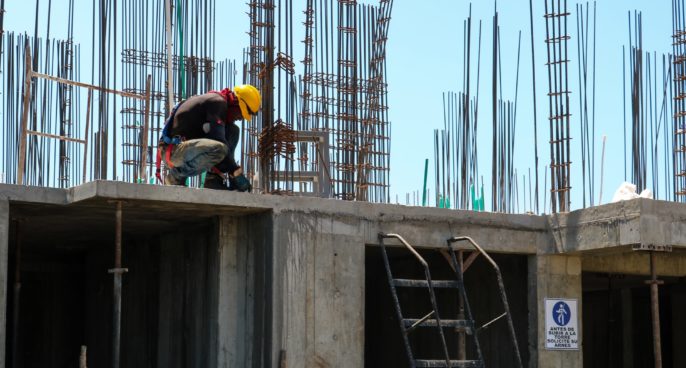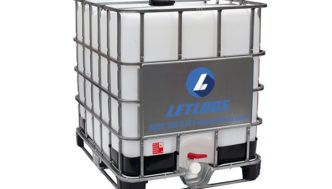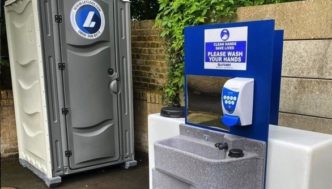
Since 1992, the HSE Workplace (Health Safety and Welfare) Regulations have defined the rights of workers in most industries with regard to their working conditions. While that document does not apply to construction sites, the amendment of the Construction (Design and Management) Regulations in 2017 heralded a tightening of the legislation surrounding the requirements for construction site welfare facilities.
What this means in practical terms is that site managers and foremen now have a legal responsibility to ensure that all staff and visitors to the site have access to adequate sanitation and recreational facilities. The exact form that these facilities will take may vary depending on the unique circumstances of the construction project in question. There are a number of factors which influence these requirements, including the nature of the work, its duration, its location and the environmental conditions facing staff.
Needless to say, it is a minimum requirement for most site managers to accommodate employees via the provision of toilets, wash facilities (including showers, for some situations), break rooms, storage space and plentiful drinking water. Due to the logistical difficulties involved in satisfying each of these requirements individually, many site managers find it convenient to arrange for portable welfare facilities to be placed in-situ, fulfilling all of their obligations with just one solution.
If you’re in any doubt about whether it makes sense to place welfare facilities on site for your project, this handy guide aims to provide basic information on the subject. However, the advice offered here should never be substituted for either governmental documentation or professional counsel. As such, those who still have questions after reading through this article are advised to consult the relevant government legislation or get in contact with one of the friendly experts at LetLoos, who will be happy to share their insight on the matter.
Table of Contents
What are welfare units for construction sites?
Before drilling down into the nitty gritty of which kinds of construction projects demand the provision of welfare facilities on site, it’s first important to define what a welfare unit actually is.
For the uninitiated, a welfare unit is a self-contained unit which meets all of the welfare needs of the staff and visitors to a construction site. While their layout and exact features might vary from one site and one service provider to another, they generally consist of toilets, hot wash facilities, changing rooms with storage lockers, clothing drying rooms and adequate rest areas. They may also include mobile shower units for particularly dirty or hazardous work.
By choosing to hire a welfare unit, a site manager can streamline the process of providing adequate facilities for their workforce and site guests. In the busy world of construction, welfare facilities are often an afterthought, so finding a ready-made solution which satisfies all requirements can be invaluable in freeing them up to tackle other tasks.
When is it appropriate to hire welfare units for construction sites?
Generally speaking, portable welfare facilities are recommended for most construction sites. However, there are a number of specific considerations which will determine whether or not their provision is a legal requirement for your site. These include:
The duration of the project
Perhaps the number one factor in deciding whether your project would benefit from welfare facilities on site is its duration. For shorter jobs which are only expected to take a matter of days, it may not be necessary to arrange for a welfare unit to be situated on site.
For all works which are notifiable, it is essential that you put in place sufficient facilities to accommodate your staff prior to the commencement of the work. That includes any project which is scheduled to last for 30 days or more, host 20 people or more on site at any one time or involve 500 single person days of work.
As such, you should take the time to ascertain how long you expect your particular project will last, then decide whether or not hiring a welfare unit is the right solution for your requirements. Given that most construction sites are in place for far longer than the timescale outlined above, it’s highly likely that portable welfare facilities will serve a valuable purpose for your project.
It’s also worth noting that a project which is deemed notifiable because of its duration must have welfare facilities on site, even if none of the other factors mentioned below are applicable.
The nature of the project
Construction is invariably a job which incurs a certain level of dirty work. After all, it’s impossible to clear land, dig foundations, lay bricks and construct buildings without getting some dirt under your fingernails.
However, there are some construction sites which involve higher levels of filthiness than others. For example, any project involving the maintenance of sewers is going to entail a greater amount of grime than others. The same is true for demolition works which create a large amount of dust and other debris, as well as projects which demand the mixing and pouring of concrete.
Meanwhile, other sites might require workers to handle or become exposed to toxic substances for prolonged periods of time. For instance, any project located on land that has been contaminated with chemical or radioactive substances, or any demolition work of a building containing asbestos or another toxic element, is deemed to demand enhanced facilities to allow workers to practice hygiene.
In such scenarios, the provision of a standard welfare unit alone is not sufficient. Instead, for this type of construction, welfare facilities must also include mobile shower units so that employees can properly cleanse themselves of any pollutants which might cling to their skin, hair and clothes after they have finished their working day.
The location of the project
While construction work is often associated with urban environments, that’s not always the case. Sometimes, new developments are planned for remote and rural locations. Even if the project is sited within a town or city, it may still be far enough away from other infrastructure that staff members have to travel far to reach it and have no access to sanitation facilities in the vicinity.
In this situation, the provision of welfare units for construction sites which are far removed from public facilities is a legal requirement. This is true even if the job is expected to be finished within a matter of days and doesn’t entail particularly dirty work, since employees will still require access to basic amenities such as a WC, running water, drinking water and recreational areas.
The CDM regulations of 2015 state that when it comes to construction, welfare units should ideally be connected directly to a mains water supply to ensure drinking water is always available. However, on occasions when this is not possible, it is acceptable for water to be stored in a separate tank, so long as it is changed regularly and all reasonable precautions to prevent its contamination are followed.
Meanwhile, hot wash facilities are also a legal necessity. If the welfare unit in question cannot be connected to a mains supply, the stored water must be heated to an adequate temperature to allow staff to clean themselves properly after using the toilet or after they have finished work.
The working conditions of the project
The Great British climate is not known for its reliability. In certain parts of the country, the summer can make working on a busy construction site a sticky and uncomfortable job. In this kind of situation, adequate hot wash facilities (and possibly mobile shower units) must be provided to ensure staff can stay clean and hygienic while at work.
On the other hand, the UK does suffer from extreme weather during the colder months of the year, too. For construction projects which take place over winter, it’s vital that site managers arrange for a safe, warm and sheltered place for them to change into their working uniforms, enjoy their breaks and store their belongings.
As a result, site managers should consider the time of year during which the work is scheduled to take place and the potential ambient conditions that could affect the comfort of the workforce. For all situations where extreme weather is likely to affect construction, welfare units are an effective solution to the problem.
Construction projects which may not need on-site welfare facilities on site
As you may have realised from the above information, the vast majority of construction sites would benefit from the provision of welfare units. Indeed, welfare facilities for construction sites are actually a legal requirement most of the time.
Having said that, there are certain occasions when a site manager may be able to find an alternative solution to the problem. These include transient projects, defined as those which are scheduled to be completed in a week or less, or those which are continually moving from location to location (such as laying cables or carrying out major roadworks).
In these situations, the brief duration of the project or its nomadic nature may make it impractical to install welfare facilities on site. The expense and effort involved in the installation might be deemed too onerous for a site manager to shoulder such a burden if alternative arrangements can be made.
These arrangements most commonly take the form of using the facilities in an existing building in the vicinity of the works. This building might be a commercial premises, private business, public space or simply the building in which the construction work is carried out. Regardless of the nature of the building’s ownership and purpose, it may be acceptable to come to an arrangement with the owner of the facilities for staff members to use them for the duration of the project.
However, explicit permission from the building owner must be obtained prior to the commencement of the works. It should never be simply assumed that construction site workers can use the facilities whenever they wish, even if they are open for public use. Staff must be aware of the arrangement and informed of exactly where they must go to make use of the facilities.
The facilities must also be easily accessible by all employees, open throughout the entirety of their working day, incur no cost to those using them, maintain adequate levels of cleanliness and meet all of the relevant requirements for welfare units for construction sites. For a more detailed breakdown of those requirements, please consult our blog post on the subject.
Where can I hire welfare units for construction sites?
Heard enough? The simple truth of the matter is that hiring a welfare unit is the most straightforward and stress-free method of ensuring that your project meets all of its legal obligations. Given that failure to comply could incur warnings, fines and even a complete shutdown of the works, it’s always better to err on the side of caution when planning a construction project.
Fortunately, LetLoos are on hand to help. Each of our construction welfare units are designed to meet HSE Health, Safety and Welfare regulations and can accommodate up to six team members at a time. For those larger projects, it’s possible to order multiple units at once, while we’ll deliver them to your site’s location at a time and date convenient to you, then pick them up after the job is complete.
Every welfare unit we supply is thoroughly steam-cleaned prior to delivery, and even comes stocked with all the essentials you’ll need. That includes toiletries (such as soap and toilet paper) and appliances (like a kettle and microwave), plus a packet of biscuits to ensure the work gets off the ground on the right foot.
Eager to ensure that your construction project is fully prepared with regard to the welfare of your workers? Get in touch with us today. We’ll be happy to discuss your requirements and allay any doubts you may have, as well providing a free, no-obligation quote for our services for the duration of your project. Don’t delay any longer. Contact us now!



